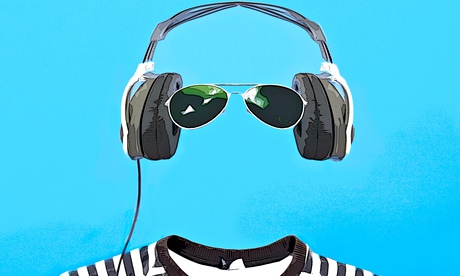
The MRC Institute of Hearing Research says that one in six adults has enough hearing loss to cause problems in social situations. The World Health Organisation says that the single biggest cause of preventable hearing loss in loud music. So, you've got to assume that a pounding bass delivered straight to the sensitive inner ear through earphones can't be a good idea. Can it?
The solution
A review of the research in 2010 found there wasn't enough direct audiometric evidence to say that hearing could be damaged solely by listening to music. So, the MRC has launched an online study to see if it can find evidence to link hearing loss with personal music players. Participants are asked how much loud music they have listened to (the survey also includes clubs and gigs) and then to do a short listening experiment.
The MRC says that we don't know how loudly people listen to music on their personal music players or how continuously they do so. What we do know is that personal music players can reach between 95 and 105 decibels (dB). Just over 105dB is equivalent to holding a chainsaw at arms length. The Dangerous Decibels campaign from the Oregon Health and Science University says that based on this evidence you'd expect to damage your hearing within 15 minutes if you used ordinary headphones with your iPod at maximum volume.
Loud noises cause hearing loss by damaging the stereocilia: tiny hairs that sit on the top of hair cells in the inner ear. Noise makes them vibrate – changing the voltage in the hair cells – which then sends chemical messages through nerves to the brain. Battering your stereocilia will damage your hearing.
If you're a parent what should you advise your children? Owen Brimijoin, an Investigator Scientist at the MRC Institute of Hearing Research in Glasgow, says you could ask them how much they are enjoying their music and suggest they'll find it harder to listen to it in the future if they don't turn it down. How soon that might be is unknown: a seminal study on female jute weavers in Scotland (exposed to loud noise) published in 1965 found hearing loss after 10 to 15 years.
Brimijoin also suggests getting good-quality headphones, as cheap ones don't transmit the bass well. When you increase the volume it increases the high-frequency sounds as well and it is this noise that is most dangerous to hearing. Take frequent breaks from your personal music player. There is some research showing that antioxidant vitamins, such as vitamin C, can prevent hearing loss, so eat an apple when listening to your music.

